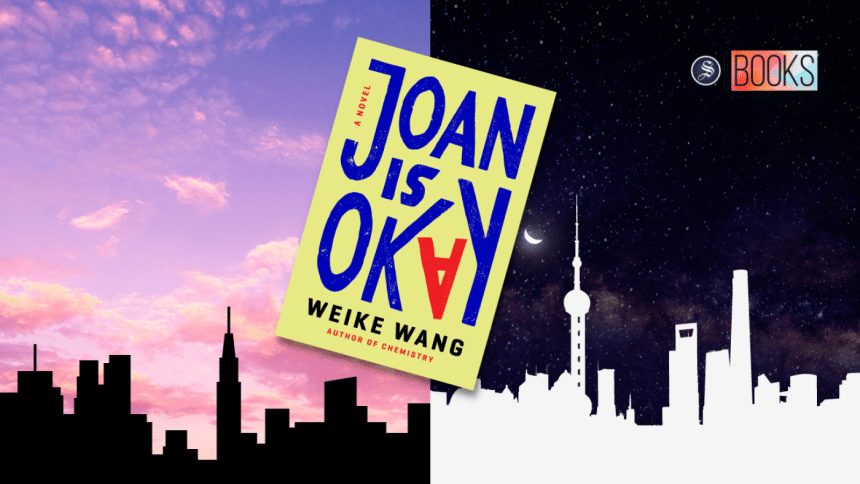Weike Wang's ‘Joan Is Okay’ tells the story of an antisocial millennial

"It is okay to not be okay", Gen-Z's favourite self-love catchphrase, takes on a new meaning in Weike Wang's sophomore novel, Joan is Okay (Random House, 2022). Set against the backdrop of the early days of the pandemic, the story follows Joan, her relationships or rather, lack thereof and the intertwined web of identity, grief and loneliness.
Joan is not your average nihilistic protagonist drowning in existential dread. On the contrary, Joan aspires to be average; it seems to appease her that she has been "standardized". A Chinese American woman in her mid-30s, Joan is an attending physician at a New York City Hospital who has an uncanny love for machines. She lives in Manhattan's Upper West Side and works more shifts than is expected of her. The story begins with the sudden news of her father's death. For the funeral, she travels to Shanghai only for 48 hours.
Everyone in Joan's life is puzzled by her and does not tire of telling her how she is living her life wrong. Her brother, Mark, thinks she should leave her job and start her own practice in Greenwich and live near his family. Her sister-in-law Tami tells her she needs to get married while her harmless yet overstepping neighbour, Mark, suggests she needs more furniture in her apartment. Without totally giving in to their suggestions, she feigns acceptance to avoid conflict.
For our protagonist, passivity is as much a volitional choice as it is a coping mechanism. Joan, unlike her co-workers, sees no problem being a cog in the system. "Cogs were essential and an experience that anyone could enjoy." Yet her dampened rage and dry humour come out in her dim yet quick witted responses to her co-workers and her brother. Wang's portrayal of Joan is idiosyncratic and her idiosyncrasies unsettle others. The reader cannot help but feel sorry for her. But Joan is self aware in a way that you cannot fault her for. Everyone's incessant interference in her life tells us one thing—society's obsession with putting people into boxes is ceaseless.
Grief, identity and death all exist all on the same page in this novel. Wang uses them as literary devices. Joan's identity is multilayered and sometimes, she finds it blurred between all the identities she has to juggle with. Joan has always felt not American enough for America and not Chinese enough for China. As a transnational immigrant, even her work ethic is assessed in a dehumanising way. It is reflected in the hospital director's perception of her as "a gunner and a new breed of doctor, brilliant and potent, but with no interests outside work and sleep." Her own feelings about being treated as "other" comes out when she thinks back to her conversation with Mark, "Who really wanted to be different?" And to be treated differently for things about them that couldn't be changed. Most people who were different, just wanted to be the same."
"Broken pronunciation implied a broken mind, unless the accent was British or French, which then meant the person was posh", she says at one point.
Then again, being an immigrant's daughter is what makes her distant from her family. Even how she handles her grief is frowned upon. Throughout the novel, Joan seems to be erasing her emotions. Only after her mother's arrival in the United States does she find herself confronted with the grief of her father's death, which she has resisted for far too long. With an almost forced six-weeks-long break from the HR, she recounters her detached relationship with her family, her inability to make friends and the visits to the counsellor's office back in school. The pandemic arrives and Joan finds herself back in the hospital. The novel ends with the illustration of the catastrophic events of the pandemic, which readers are far too familiar with.
So, Joan is probably not okay at all. But in a dysfunctional society where everyone pretends to be okay, Joan's choice of living and handling her grief is far from odd. Despite what the capitalist society's handbook tells us, there are multiple ways of existing.
Nawshin Flora is currently daydreaming about catching up to her never ending TBR list. Remind her to get enough sleep at [email protected].

 For all latest news, follow The Daily Star's Google News channel.
For all latest news, follow The Daily Star's Google News channel. 









Comments